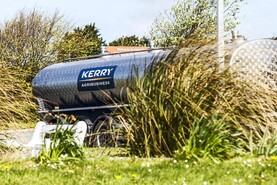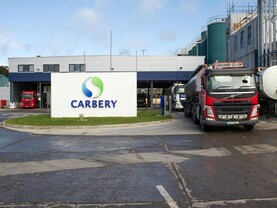Danish dairy giant Arla Foods, the sixth largest dairy company in the world, has announced a proposed merger with EGM Walhorn, a farmer-owned co-op based in Belgium.
Arla, with revenues of €9.8bn in 2013, processes more than 90% of the Danish and two-thirds of the Swedish milk pool.
In 2013, Arla processed 12.3bn litres of milk, more than double the Irish milk pool. This milk is sourced from six different European countries and they have ambitious plans for growth post 2015.
“EGM Walhorn would provide us with an opportunity to grow our milk pool across Europe and the merger would be an important step towards achieving our strategic ambitions, which are focused on growth,” said Åke Hantoft, chairman of Arla Foods.
EGM Walhorn has revenues of €239m and processes 532m litres of milk annually.
Under the proposed deal, EGM Walhorn, owned by 800 farmers, would retain its co-op status.
Arla expect its farmers to produce an additional 1bn litres of milk post 2015 and to have developed a blueprint called Strategy 2017 to realise the potential of this extra milk.
The company has specifically targeted markets outside of the EU as areas for sales growth. Arla has invested in Russia, China, the Middle East and Africa, where there is general economic growth and strong potential for dairy products.
Arla also plans to further diversify its business in the coming years, with 20% of group revenue to come from its baby formula and ingredients by 2017.
In 2012, Arla signed a 10-year contract to produce baby formula for Biostime, a Chinese infant nutrition company.
Arla’s highly profitable ingredients business had revenues of €321.5m in 2013 and the company plans to double this figure by 2017.
Arla’s model to develop a value-added diversified business is impressive and shows the strength of one processor. With Arla’s scale and ambitious growth plans, Irish processors will need a very clear strategy to compete successfully.






 This is a subscriber-only article
This is a subscriber-only article









SHARING OPTIONS: